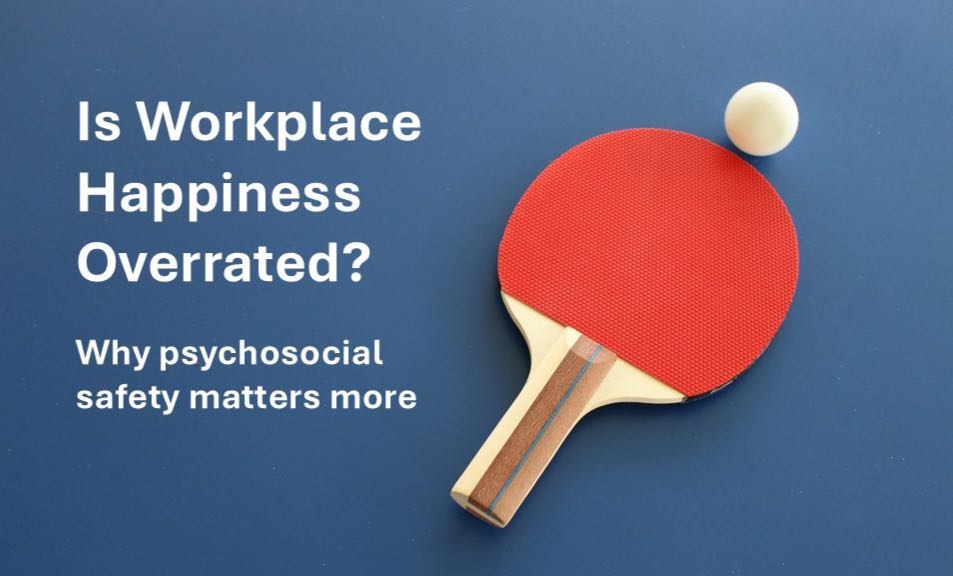Last week, we set a poll asking, “Is it acceptable for a leader to lie or be economical with the truth?” as a precursor to the second of our 7 Tough Truths of Effective Leadership series. The winning vote was for “Never” with 67%.
This answer reflects an idealistic expectation of leadership built off the millions of pages written about authentic, ethical leadership. Most organizations have something in their values about being honest, trustworthy, or transparent. While businesses espouse these values and behaviors, they ignore a straightforward truth – honesty is not always the best policy to succeed in competitive business situations. As an extreme example, if a competitor asked you to share your secret formula for success, but sharing this information might destroy your business, would you tell the truth or lie to ensure the future success of your organization? For most people, it’s not even up for debate. There are times when leaders need to lie, and it’s helpful to understand why some leaders are better wired for dealing with high-stakes, fearful situations where lying is an acceptable or desirable option.
Lying is based on the cognitive ability known as the “false belief test,” which most children pass at the age of five or six. It establishes that we understand the concept of ‘what we know is not the same as what someone else knows’ – we realize people won’t necessarily know when we’re lying. The consequences of being caught in a lie and whether people believe us are separate concepts.
Alongside this cognitive development comes social development – we become aware of our emotions and the emotions of others. There are seven universal emotions - anger, contempt, disgust, sadness, surprise, fear, and happiness. When someone recognizes another person has lied, they tend to experience one of the first five emotions, and the person lying must deal with that reaction. These emotional reactions typically have a negative impact on the ongoing relationship. This is why frequently lying is often not the best policy, particularly in business, where long-term relationships and reputations matter.
The old maxim ‘honesty is the best policy’ ignores the realities of competitive environments where, as much as we might strive for a win-win, not every situation has a positive solution for everyone or can be solved through compromises acceptable to all. Added to this is the unfortunate reality that the corporate and political landscape has many bad-faith actors who want, or even need, your side to lose so theirs can win. This is obvious in zero-sum game situations, scarce or even singular zero-sum games - only one mission can be first to Mars, only one city gets to host the Olympics, and only one company can establish the original patent for a billion-dollar product.
While some leaders will strive for win-win outcomes when it is a non-zero-sum game and good faith actors are involved, some will still strive for win-lose even in these scenarios. However, almost everyone will fight for a win in genuine win-lose scenarios where a bad-faith competitor wishes to harm them or in a zero-sum game where their business loss is the competitor’s gain. Because of this, there are plenty of situations where lying is helpful and widely practiced in business.
If you’re developing a disruptive offer and going for a first-in-market strategy, then it is not in your interest for your competitor to know what you’re up to. There can be only one first to market, so it is a singular zero-sum game. In such a scenario, expecting leaders or businesses to be honest and transparent with their competitors is irrational and unreasonable.
Unfortunately, “loose lips sink ships,” and to ensure their strategy doesn’t leak, sometimes leaders can only tell a very small number of people inside their organization who are close to the project, and they need to lie directly or by omission to everyone else. Sometimes, they must lie to different teams, limiting information so people don’t get fixated on things outside their sphere of concern or know too much about the overall strategy. Companies are rarely 100% transparent with their customers and suppliers about their costs and pricing models unless required. In several commercial situations, lying may be the most rational and productive action.
This creates a problem. If lying is rational and advantageous, then why not lie through your teeth, cheat the system, make billions, and rule the world? There is a rational position beyond the emotional response and possible reputational damage, which posits that if you can lie or tell the truth, you have more options and a competitive advantage over the person who only tells the truth or lies. Anyone who has played the Red/Blue negotiation game or ‘Split or Steal,’ based on the prisoner’s dilemma in game theory, will know that lying delivers a bigger payoff. In the competitive examples highlighted earlier, there is a critical external factor apart from the lying itself. There is no negative consequence or punishment for lying to internal teams or competitors.
However, if the rules change and rather than your team or a competitor asking questions, it is someone who can enforce punishment on you and your business, then it’s a different game. If that someone is the market regulator, the police, or your customers, then lying is not necessarily a rational option. If there are legal, financial, or reputational risks associated with lying and the likelihood of being caught in the lie is high enough, it is now sensible to consider being honest. A lot depends on the potential of being caught, the consequences, and the leader's virtues.
A leader with higher levels of morality, fairness, sincerity, and greed avoidance will be better at ‘finding the line’ rather than stepping over the line into regulatory or legal trouble. These virtues, or ‘containment factors,’ balance the leader’s natural ability to practice ‘bad’ behaviors with ‘doing the right thing.’
As outlined across the thought-leadership series, there are leadership personalities that deal better with these situations and the fear that would immobilize the operating capacity of most people. While leaders with higher levels of Borderline, Machiavellian, Narcissistic, Psychopathic, and Sociopathic personalities have less fear and anxiety around ‘bad’ behaviors such as lying for competitive advantage, it is the combination of their personality and containment factors that allows them to push the envelope without crossing the line and stumbling into catastrophic consequences. When they are well-contained, there is an effective and bright side to dark personalities.
The GreyScale provides actionable insights into your leadership Assets and Achilles' heels. Understand what will define you as a leader and what might disrupt your leadership career. Invest in yourself and your career today. Take The GreyScale.


